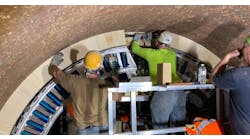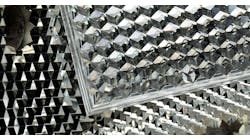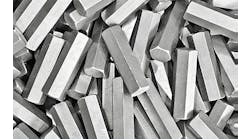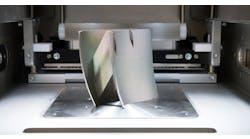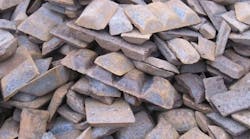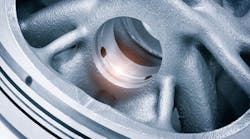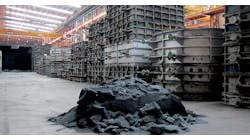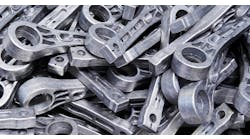BMW Group reported the automotive wheels cast at its Landshut, Germany, foundry for the BMW and Mini brands will be produced entirely from primary and secondary aluminum alloys manufactured entirely with “green” energy, starting in 2024. The automaker’s annual requirement for light-alloy wheels totals 10 million units, about 95% of which are aluminum alloys.
BMW’s goal is to reduce CO2 emissions throughout its supply chain by 20% percent from 2019 levels by 2030. Systematically increasing the percentage of secondary aluminum will contribute to that goal, it said.
Starting with its 2023 MINI Countryman crossover SUV, BMW will begin to use aluminum-alloy wheels cast from 70% secondary aluminum, which together with the green primary aluminum will reduce the wheels’ CO2 emissions factor by 80%.
Switching to green energy sources for its aluminum requirements will reduce BMW’s CO2 emissions by up to 500,000 metric tons/year, it claimed. Up until now, the production of aluminum wheels have accounted for about 5% of BMW Group’s “supply chain” CO2 emissions, so the switch will cut those emissions by more than half, it said.
In 2019, Aluminium Stewardship Initiative, an international non-profit organization supported by environmental and industrial associations, NGOs, aluminum producers, and processing companies, certified the Landshut foundry for its sustainable use of aluminum.
The automaker explained it relies on “independent audits” of its contract suppliers to ascertain the aluminum it uses to cast wheels is produced sustainably.
“Green power is one of the biggest levers for reducing CO2 emissions in our supply chain,” stated BMW AG management board member Joachim Post. “We have already signed more than 400 contracts with our suppliers, including suppliers of wheels and aluminum, requiring them to use green power.”
The green primary aluminum is being sourced through a February 2021 agreement BMW with Emirates Global Aluminium in United Arab Emirates (UAE), an electrolytic smelting operation powered by solar energy. The deal calls for 43,000 metric tons/year of primary aluminum alloys will reduce BMW’s CO2 emissions contribution by 2.5 million metric tons over 10 years, it said last year.
